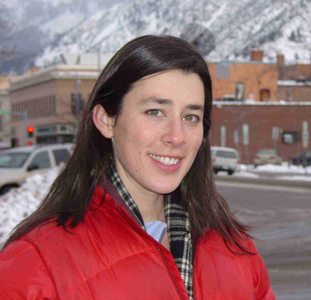|
About Richard J. Margolis
Past Winners
2015
2014
2013
2011
2010
2009
2008
2007
2006
2005
2004
2003
2002
2001
1999
1998
1997
1996
1995
1994
1993
1992
|
| Kisha Lewellyn |

"The everyday moment also offers an entryway into a person's life, incrementally revealing stories of powerful change. My essays on farming and ranching intentionally hone in on these voices, which have been neglected and silenced by lengthening chains of distribution, consumption and ignorance. In doing so, I hope to enliven the work and life of the daily farmer and rancher in order to reconnect eaters with growers and the land, and to shift the common perception of what it means to farm into a living, viable, connected part of our culture. As we recognize these relationships and the inherent economic, ecological and social costs of our food purchases on farmers, ranchers and working lands, we will be able to re-imagine the systems of food production and distribution, systems that we rely on for every other aspect of our lives."
Kisha is presently developing an essay on the rising number of female farmers in the United States and the historical role of women in farming. "To do so," she writes, "I hope to parallel the stories of a woman currently farming in western Montana and my great-grandmother, who owned and managed a North Carolina tobacco farm." She is also working on a collection of lyric essays and plan to teach a course called, "From Working Land -- The Literature of Agriculture."